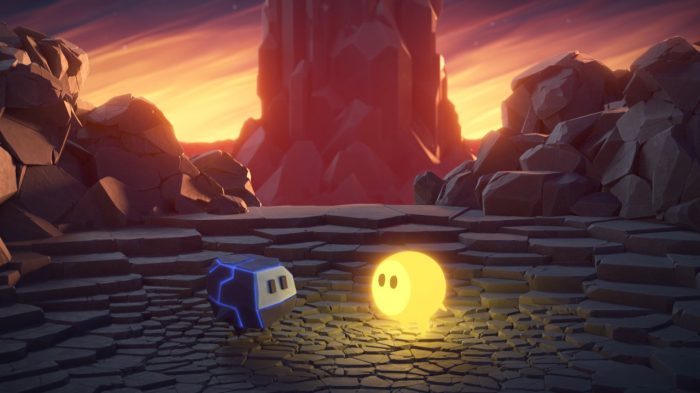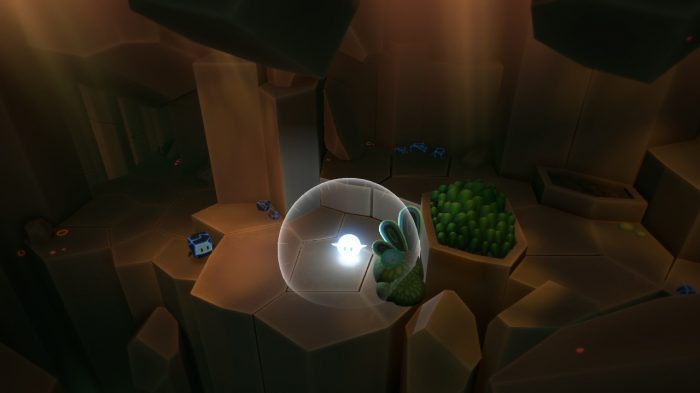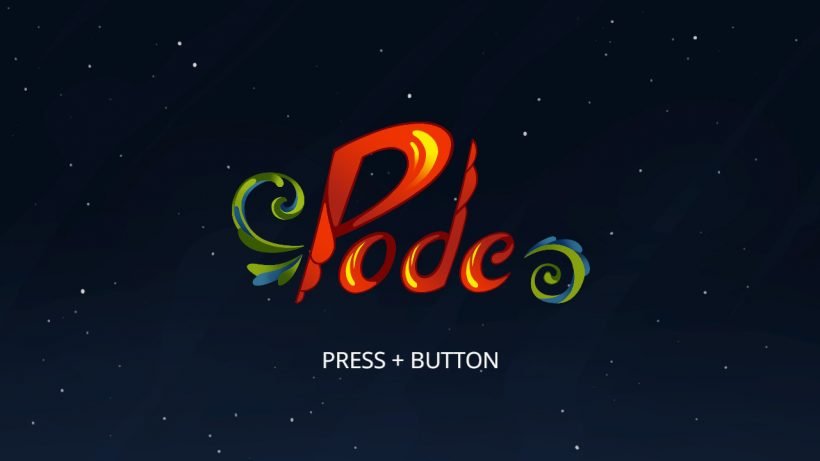Two heads play better than one.
Lots are said about how the Switch manages to be both a home console and a handheld. However, a third and equally important aspect of the Switch is how it is an easily fit to co-op experiences. Not only you get two controls when you buy a Switch – thanks to the Joy-Cons’ detachable feature – but you can play with a friend on any mode. So, it’s no surprise to see huge success in the likes of Snipperclips and Overcooked. Even less when we get more couch co-op games.

Enter Pode, a puzzle-platformer game about two little beings with distinct skills, who must collaborate to find their way through many cavernous scenarios. While you’re allowed to play the entire game alone, changing the control of the two character, be aware that this is clearly an experience intended to be shared – it is much easier and instinctive when playing with a friend.
The game starts in a fairytale-like manner, when a round little star named Glo falls from sky. It meets Bulder, a rock fella, who decides to help the new friend to get back home. In order to do that, the two of them will need to use their combined skills to change the environment and open up the way to each other. Despite the focus on the many mechanical challenges that each level provides, Pode’s narrative is a wordless sweet journey about friendship. It reminds of Brothers: a Tale of Two Sons in some aspects, due to the manner that their skills complement each other.

Talking about skills, at the very beginning, the distinctions between Glo and Bulder resides in how they can interact with different elements from the scenario. Glo can make plants grow from barren terrains. This works both aesthetically and mechanically. It is a relaxing thing to turn an entire map green, but when you do that, certain plants can grow higher near walls, becoming platforms for you character to jump on. Bulder also has its charms, though. He can make certain cristals appears, and can also activate some rock switches, which can do things like activating moving platforms, among others.
Each character also has unique properties when it comes to platforming. Glo can float through small distances, for instance, but Bulder is much heavier. The game makes good uses of these differences to create unique challenges, as you can pile them up, to share their skills. As you progress, they even learn more skills, but I’ll keep them as secrets for you to discover.

Pode portraits this cooperative journey with a very pleasant low-poly style. The levels may seem to be a little too similar at first, but it is always interesting to see how you can change the entire look of each map. What may hinder the experience at times, though, is how the game’s camera is placed. You have no direct control over it, but the camera pans out to keep both characters onscreen. As a result, it is very difficult to play some levels on handheld/tabletop modes, due to the camera distance, and some precise jumps become harder when you can’t see very well where you’re going.
However, these are punctual problems, so if you have a friend to play with you, share the joy.
Summary
Pode is a sweet puzzle-platformer about two different beings working together to fulfil their dreams. It can be frustrating at times due to camera problems, but it is a worth adventure to be shared with a friend.

